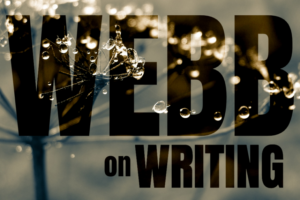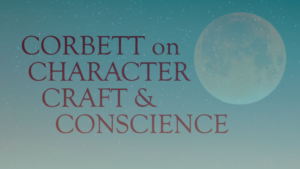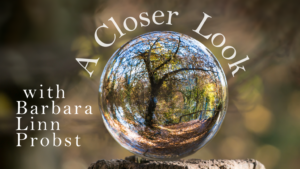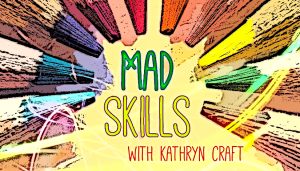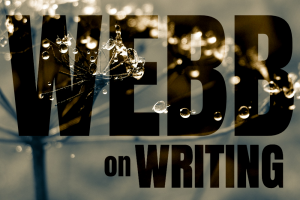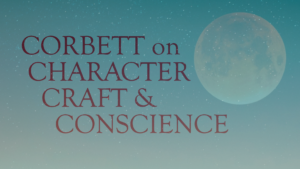Inspirations
What hunger drives your writing life? The hunger for approval by the publishing powers that be? For seeing your name on a cover? For developing your talent and improving your storytelling? For immortality? Glory? Money? Fame? Validation? Excellence? For shoving your success in the face of naysayers? For seeing a story to its end? For proving you can do it? For losing yourself in story? For making gifts for others? For changing the world?
Is your hunger enough to keep you going when writing and life get really hard? Will it keep you going and growing through repeated failure? Through success?
Chris Bosch, a champion basketball player, talks about the gift of hunger in his Letters to a Young Athlete:
Hunger can’t make you seven feet tall or tell you how to defend Steph Curry, but on those nights when your shot isn’t falling, when you can’t get a single call from the refs, when it seems like all the breaks are going against you, hunger can pull you through.
In the writing life, it might look like this: Hunger can’t give you an idea like The Boy Who Lived or tell you how to worldbuild like Tolkien, but on those nights when your words are stilted, when you can’t figure out a thorny problem, when it seems like all you get is rejections or one-star reviews, hunger can pull you through.
Bosch tells young athletes that they have to not only be hungry, but they have to stay hungry. That to be great, they have to nurture a hunger that will keep them pushing through each level of achievement.
That is compelling to me. The writing life is an emotional rollercoaster and there has to be something that pulls and pushes us through the slog times, the disappointing times, the times when our skills don’t yet equal our vision.
Looking at the list of possible writing hungers above, it’s not hard to see that some will be better at sustaining us when things get tough–or when we achieve what we’ve been working for. Money and fame are too rare. And we aren’t in control of the powers that be. But others have longterm potential.
I’ve been thinking a lot about this gift of hunger lately because, after 15 years of writing with the goal of publication, I lost mine. I can even pinpoint the exact day: August 24, 2015. My kids were in school and I was sitting on my porch, manuscript open, diving into edits, so happy to get some time to focus, when three police officers walked up to arrest my then-husband of 21 years for a sex crime. The project went on a shelf and I stopped even daydreaming about stories as I dealt with all the changes.
Maybe a similarly seismic event made you lose your writing hunger(s). Maybe you reached the goal you’d been striving for and felt adrift. Maybe publishers have repeatedly turned you down no matter how much you’ve improved. Maybe choosing self-publishing wasn’t what you’d hoped it would be. Maybe your hunger ate at you with recriminations and obsessions that kept you from moving forward.
Do I need to add the chronic stress of this pandemic?
What can we do when we’ve lost our hunger?
Read More
If there’s anything I’ve learned in the thirteen years I’ve been writing and in the seven novels published, success isn’t linear. Not in this field. It’s about as up and down as it can possibly be, twisting and turning with exhilarating highs and devastating lows. Trends come and go. Editors, agents, and publishers come and go. One of your books is hot, another is dead-on-arrival. (Most are lukewarm) But a career author gets this—they know they have to play the long game. Ride the waves as they come and keep putting words on the page, keep trying new ideas and new ways of getting their stories out there. Not only because they need to eat, but because they know that every single project can’t be the game-changer or the end-all, be-all. There are hits and misses. They also grasp that everyone has their own path to publication so there is no right or wrong answer. That said, there are some things you can do to help yourself along the way (and some things to avoid to keep your career afloat).
First, I’ll share the pitfalls a career author must avoid:
Misbehaving. I’ve spoken about this before at Writer Unboxed in articles called “Behaving Badly in Publishing” and also “Being a Good Literary Citizen,” so I’ll just give the short version here: Pay it forward when another author helps you out. Don’t make rude and edgy comments when someone makes a mistake or typo in an article or post, and don’t trash an author’s book in a way that is a personal affront. Be kind. People never forget a slight. And above all, be a professional.
Arguing with your editor. Look, it’s your book. You don’t have to do everything your editor asks of you. Their editorial letters really are suggestions; a list of their instinctive reactions about how your story is coming across to them as a reader. You may disagree with them, or even feel offended (we are rather sensitive about our work, aren’t we), but it’s best to ponder the editor’s suggestions for a few days, or even a couple of weeks to digest it all. Chances are, you will find good stuff in their feedback even if you disagree on how to address it. Most editors understand it is your book, and they will hear you out about why you’re going in a particular direction, but ultimately, it’s important to remember that they can choose not to publish it, or worse, not buy your next book because you have proven to be difficult and argumentative. In other words, set your ego aside and learn to take criticism. It’s very easy to be black-balled in our business. I’ve watched more than one friend go down in flames, in spite of earning out their previous advances. (There are exceptions to this rule. Sometimes an editor or a publisher is truly missing what you’re trying to do and it’s a poor fit. If this happens, talk with your agent or other author friends for advice on how to part ways.)
Being narrow-minded. (Is it always Art First at all cost, or Art […]
Read More
Basing fictional characters on people we know carries both distinct risks and unique rewards.
The risks include potentially offending the person inspiring the character, especially if unflattering facts are revealed and the characterization is not adequately camouflaged—or poorly executed.
That said, a great many writers I know have reported that the people on whom they’ve based characters have seldom if ever recognized themselves, if only out of misguided vanity.
On the other hand, the rewards of basing characters on people we know include the ability to use personal, real-world knowledge and observation in the characterization, with the added plus of being able to use one’s own distinct intuitive impression of the person.
Obviously, there is no guarantee that knowing someone assures that you know them well. How much of someone’s life goes unnoticed by even intimate companions? Absent clandestine surveillance, we can’t know the secrets of others unless they’re divulged to us, either by the person herself or by someone betraying a confidence. And the violation of trust revealed in the latter circumstance is only enhanced if the secret is passed along by us, fictionally or otherwise.
I first began thinking of these matters when I was working on The Art of Character, specifically in response to the question of where our characters come from, i.e., are they created or discovered. (Answer: they’re a little of both.)
And while I was working on that section of the book, I happened upon a poem John Updike wrote late in his life, titled “Peggy Lutz, Fred Muth.” (I’ve included the complete poem at the end of this post; you can also read it online here.)
In that poem, Updike remarks:
Dear friends of childhood, classmates, thank you,
scant hundred of you, for providing a
sufficiency of human types: beauty,
bully, hanger-on, natural,
twin, and fatso—all a writer needs
These thoughts came crashing back to me recently when I returned to Columbus, Ohio, to attend my 50th high school reunion. (Yes, I really am that old.)
In particular, I was repeatedly struck by how much or how little many of us had changed, and in both instances why.
A few years back, here at Writer unboxed, I wrote a post titled, “Types, Characters, and the Occasional Human Being,” about the difference between types and characters. The former usually reveal themselves upon first impression and, barring extreme circumstances, seldom change—they remain “true to type.” Characters, however, possess more complexity than first impressions can allow. They often reveal themselves gradually, over the entire course of a story, in slow progressions or sudden bursts of self-disclosure, often in moments of crisis.
And yet, as I got reacquainted with my former classmates, I realized there was a lot more to be said of “remaining true to type” than the remark I just made might suggest.
[From this point forward I will use monikers to describe the individuals discussed—to protect the innocent, including me.]
Read More
Warning: Hacks for Hacks tips may have harmful side effects on your writing career, and should not be used by minors, adults, writers, poets, scribes, scriveners, journalists, or anybody.
Everybody loves the smash-hit TV show Ted Lasso from Apple TV+. The ongoing saga of Jason Sudeikis as an aw-shucks football coach from Kansaz who gets hired as a Premier League soccer coach in London is equal parts hilarious and heartwarming. Expertly performed, directed, and written, Ted Lasso is a masterclass of writing lessons for everyone from the most famous of authors to the hackiest of hacks. I’m a little bit of both, so here’s what I learned from watching Ted Lasso.
Flickr Creative Commons: paolobarzman
Real life might be stranger than fiction, but does that mean writers should abandon plausibility?
The past year has seen me doing two things. The first thing has been coping with the pandemic during the massive COVID spike India witnessed earlier this year. The country was reeling in shock from the lack of basic infrastructure while grieving with the loss of loved ones. Of course, the world is not done with this terrifying plot; if anything we’re just getting better at living in the moment.
The second thing I’ve been doing is finishing my second novel (yes, this was the productive part of my coping). I was writing a plot that ‘could’ be the future if we didn’t take some political and social realities seriously enough. One of my characters, who in general stands up for many social issues, does something truly awful to a friend. To be honest I had a hard time trying to convince myself about the plausibility of it all, both the larger plot of the book and my character’s surprising behavior.
As if COVID as a global tragedy wasn’t enough for me to be comfortable with the idea that literally anything could happen and change everything we knew; it’s absurd really, the idea of writing a plot that might be ‘too much’ when ‘too much’ was happening all around me.
It got me thinking about our craft and our intent as writers.
When we decide to write something, we are unspooling a character or a series of events that, most of the time, says something about our humanity. Sometimes a weird unbelievable incident or anecdote comes your way, and it inspires us to write a story or a book.
I’ve been a true crime fan for a long time now. I can watch endless hours on YouTube about people who did the most horrific things without an ounce of remorse. In fact, some things that have happened in our world are far more absurd than anything I’ve read in fiction (at least fiction that stays within the realms of reality and humans).
But that’s seldom enough for you to base the entire intent and pacing of your story.
While it’s true that any wild concept can be a plot and any character can partake in something ‘absurd’, I have come to believe that plausibility isn’t the main challenge.
Our characters are more than their plot points
Write a character well enough and they tend to surprise you with what they do later in the story. Our characters are important to the life we bring to our stories. When we do them right, we also give them agency. It’s a bit of a contradiction, perhaps like God and the idea of free will (if you’ll indulge me). If we think we’ve done our best with our characters, to the point that they start doing things on their own terms, I urge you to trust that instinct. Here are some things to think about when writing your characters:
Our plot points are more than their shock value
Read MoreI’ve spent virtually my entire life in the entertainment business, starting as a child in local amateur theater, then professional music, then this whole crazy book-writing thing. As different as these disciplines are, they have some core traits in common, chief of which is the need to please an audience. After all, if nobody comes to your show, or listens to your music, or reads your book, aren’t you just shouting into the void?
So a core trait that each successful artist has in common is that they do please their audience. The really successful ones please a really BIG audience.
But it’s never everybody.
Just as not everybody likes chocolate better than vanilla (because the ones who don’t are sadly wrong, but I digress…), not every artistic effort is going to resonate with or appeal to everybody. I think we all know this, deep down, but it’s helpful to remember that the most successful artists are often the ones who evoke the strongest reactions – but those reactions can actually be positive OR negative.
Don’t believe me? Look at the “Best Dressed” or “Sexiest” lists in some popular magazines or social media, and then look at the “Worst Dressed” and “Butt-Ugliest” lists (okay, there’s probably a gentler name for that last one, but let’s be honest: that’s what they’re implying). You’re going to find many of the same names on BOTH lists. Think about artists like Madonna. Lady Gaga. Adam Driver. Kanye West. People either love them, or they hate them. Rarely do these public figures evoke a “meh” reaction.
Um, no hugging, please.
My point is that some of the most successful artists have a truly polarizing effect. And I submit that’s a good thing. Something to aim for, even.
Striving to be inoffensive
I think it’s safe to say, many of us do not aim to polarize – either in real life, or with our fiction. Instead, we play it safe, tiptoeing around sensitive topics to avoid alienating or offending people. And this practice is reinforced constantly, when we see people complaining that entertainers and artists shouldn’t try to impose their opinions on their audience. “Just entertain me,” we are told, “don’t tell me what you believe, or what you think I should believe.”
I saw an example of this just recently, when a musician I’m acquainted with on Facebook posted in support of a regional politician he apparently admires. Personally, I hate the guy he supports, but it’s his FB page, not mine, so I stayed out of the conversation.
But lots of people didn’t. They chimed in from both sides, either praising or deriding his choice. But another sentiment quickly began to surface, which I’d been waiting for. Below is a paraphrased example:
“No matter what your political stance, it is never EVER a good idea to promote it when you are an entertainer, or in business! Never!”
Think about what this comment says to every artist – and even every business owner. In short: How dare you have an opinion? Your sole functions are to entertain me or serve me – and not offend me.
Let’s be honest: Many of us may have felt the same way when seeing an artist or celebrity voice a provocative or controversial […]
Read More
The Writer Ghost Lights
One of my favorite fanciful notions is that of the ghost light, the light theaters leave burning center stage, a light that serves a practical purpose, yes. A way to keep the dark safely at bay until proper lights can be reached and turned on. It’s also a light said to appease the spirits in the theater, a way to give them what they most want- the stage.
As a writer, I’m learning to keep my own ghost light burning, an offering to the restless stories and luscious words too often just out of reach. I visit them, humbly, with pen and paper, and keep a record of them, of their stories. But the question I kept asking myself is this- am I truly a writer if I’m only scribbling in spiral-bound notebooks for a few minutes just before I go to bed at night?
I tried to imagine taking a wrecking ball to the entire endeavor. I think if your soul is done with a thing, it would know lightness at the thought of walking away for good. I didn’t. And there was this- those scribbles brought me joy, a little hope, especially during our current cultural, political, and environmental turmoil. That ghost light mattered.
What I realize is that writing is the lens through which I see the world. Not a thing I could cast into darkness and never step foot into again. My time writing perhaps a page a night isn’t wasted, it is time spent in practice, like meditation or long-distance running. No matter how dim the light, the ghosts were there and they never once stopped talking amongst themselves.
It Waits For You
There is what I have come to believe is a myth we tell ourselves to keep doing the work. A myth I believed, and it stunted me. This notion that if we don’t catch the idea and drag it by its tail end to our computer screen, another writer will snatch it for themselves. There is good in this, yes- we need to commit to the work, absolutely. Yet.
Yet, I politely counter that it waits for you. It’s more than an idea, a story, it’s not something floating on the ether, but a thing that you own. Your Voice. There’s enough strife in the world, we don’t need to go to war with ourselves. Taking the time to grieve, reset, heal, and find what renews you will not dim that particular light. The stories belong to all of us, and not just writers, but all artists and creators. That lens is what is particular to you, it’s your experience, passion, weirdness, and the full glory of your humanity.
It belongs to you and it’s full of the grace you likely aren’t giving yourself. Let it burn, waiting patiently center-stage.
I read once that while they closed across the globe during the pandemic, theaters kept those ghost lights lit. They meant it as a symbol of hope, the darkness and overwhelm would end and we would all have a light to help us find our way back to storytelling.
The act was a promise and a prayer.
Tending the Flame
What do the ghost light and its incumbent entities require of us?
Read More“One writes out of one thing only—one’s own experience. Everything depends on how relentlessly one forces from this experience the last drop, sweet or bitter, it can possibly give. This is the only real concern of the artist, to recreate out of the disorder of life that order which is art.”
James Baldwin – Notes of a Native Son
Life is full of disorder. There are so many things that are, that ought not to be.
In any environment, we not only see disorder when it’s present but we can feel it, we can sense it, we can taste it. It messes with our holistic equilibrium. Some of us fear disorder, others easily live in it, but many despise it.
The real question is, “What do we do with it?”
To counteract disorder, we look to order. And here we see two opposing forces on the seesaw of life. The gravity of this powerful dichotomy weighs on our very souls every day. Disorder innately feels so out of place that order naturally presents itself as the ultimate solution.
Order, however, can often indicate rigidity. It signifies parameters and boundaries. It implies the handiwork of someone or something with power. It suggests the way things should be — but according to whom? And within this non-enticing rigidity, we see that order can be just as frightening as disorder.
No one wants to escape the chaos of their life only to be put in a box and told what to do and how to live.
But there is another order. One that is not given to you by someone else. One that expands every corner of the box and pushes us from a three-dimensional world into an infinite one.
So, how do we move from disorder to an order that we would welcome? We follow the words of the Native Son, “…recreate out of the disorder of life that order which is art.”
The magic is in the art.
Our working definition:
Art is the expression or application of human creative skill and imagination, producing works to be appreciated primarily for their beauty or emotional power.
The application of human skill and imagination — that’s it! That’s the key! We artists, we writers, we musicians, we creators weave beauty and emotional power from both our human skill and imagination.
To create artistic order out of disorder, one has to first have an imagination — a vision so to speak — a vision of what could be. A vision of order, beauty, and emotional power forged from the seeds of disorder.
An artist must have a vision and embedded in that vision is something that the artist might not even see themselves. One must have hope.
Hope — that important yet often elusive immaterial thing that lies just beyond the grasp of our fingertips. Hope can be an anchor for our souls, yet it’s not a past anchor, or a present anchor, but a […]
Read MoreHow did Judith Ortiz Cofer transform herself from a “frustrated artist” to a “working writer”? Read The Latin Deli, where she describes her transformation as “an act of will.” She decided to get up at 5:00 a.m. each morning, two hours before anyone else in her household. The decision became an expectation she had of herself, and the expectation developed into a daily ritual, whether she was writing poetry or fiction or dividing her time between the two genres. She completed her novel, The Line of the Sun, not by expecting an enormous swath of time to open magically before her, but by writing in small increments every day. She developed short, reflective essays and stories the same way, later collecting them side by side with poems that amplified or reframed their themes. She empowered herself by making an active choice and recognizing that the “urgency to create can easily be dissipated,” especially if you are a woman. In “5:00 A.M.: Writing as Ritual” she admonishes us to do whatever we have to do, including “stealing” time from ourselves.
Ortiz Cofer presents the decision to write as a simple practicality. Read Woman in Front of the Sun, however, to understand the weight and complexity of her struggle to give voice to her experiences as a Latina, born in Puerto Rico and raised in the US. The essay “Are You a Latina Writer?” answers the question posed in the title. Her purpose as “an emerging writer” evolved. She wanted her work to serve as a bridge, a way of transiting across borders
so that I would not be like my parents, who precariously straddled cultures, always fearing the fall, anxious as to which side they really belonged to; I will be crossing the bridge of my design and construction, at will, not abandoning either side, but traveling back and forth without fear and confusion as to where I belonged–I belonged to both.” (Woman in Front of the Sun)
To write she must separate herself out from parents “who precariously straddled cultures.” She must design and build a bridge and travel from one side to the other, never abandoning her family and sense of place, never being fearful or confused. Aside from the magnitude of the tasks she sets for herself, there is the paradox she must negotiate daily: to survive, she must be separate and unlike her parents; to survive, she must never separate herself from or betray them. This is a double bind that I understand especially well as a Latina from a sister island, Cuba.
In “A Prayer, a Candle, and a Notebook,” the sense of distance between herself and those she loves is even more stark. In this essay, faith, hope, and the notebook where she records her memories serve as the sources from which she fills her well of knowledge:
As I look deeper into myself,” she writes, “I discover that I left the place where my family’s well is located. As a writer I am always in the new territory of Myself Alone. I am looking for new lands to discover every time I begin a sentence. I carry nothing but a dowser’s wand and my need to make order, to find a few answers.” (Woman in Front of the Sun)
Ortiz […]
Read MoreThere’s been an awful lot of difficult news in the publishing world lately. The year has been packed with releases that were delayed because of the pandemic, making some books completely undiscoverable. Editors are more backed up than usual, trying to wade through enormous piles of submissions that were also delayed. Which, in turn, affects writers as we desperately wait for news—will it sell or won’t it? Most of us are feeling a little malaise, or as Adam Grant called it, languishing, in this article from the New York Times, post-pandemic. (Is it really post? Who knows)
But a little camaraderie among friends and colleagues goes a long way to turn the ship around. In fact, I find I always feel more positive when I turn to my fellow writers. So I did. I asked them how they work through the difficult times—how they get going when things are tough—and this is what they had to say:
“Get back up again. This business will knock you down. Get back up again. It may take months or years to find an agent. The same again to land a book deal. The road will be paved with rejection letters. Soulless form letters. Get back up again. You will finally get the coveted agent/book deal. That book might not sell. Get back up again. Pivot, rebrand, reimagine your books. Your career. Yourself. If you really want to publish… get back up again.” –Aimie K. Runyan, Amazon bestselling author
“First, I lean on my husband—he’s the king of truth with kindness—and he’s always on my side. Then I turn to two wildly disparate sources: 1) A good binge (ER got me through some tough times). 2) The wisdom of stoicism, reaching for some semblance of the four virtues: Justice. Temperance. Wisdom. Courage. Then I open up a random page or two of THE DAILY STOIC BOOK. https://dailystoic.com/daily-stoic-book/” –Randy Susan Meyers, National bestselling author
“When it seems to be raining bad luck and I have things I don’t want, or worse, don’t have things I do want, I make a list of things I don’t want and thankfully don’t have. For me, perspective is everything and gratitude isn’t far behind.”—Susan Meissner, USA Today bestselling author
“I get serious about my diet and sleep. I don’t eat sugar I don’t drink alcohol I go to bed at 9 o’clock so I can get up really early and be clearheaded. I’m not proud of this clean lifestyle during stress, I just have to do it.”—Ann Garvin, USA Today bestselling author
“Any author can tell you, a publishing career will be riddled with highs and lows. Still, when the bad news starts to outweigh the good, it can be enough to deflate even the most talented of authors. I’ve watched too many good writers hang up their hats in defeat, and that always breaks my heart. If I’ve learned anything in life, it’s how to take a fall. And how to get back up and try again. To remain motivated, I never lose sight of how privileged we are to write, to publish, and to speak freely. If I ever start to […]
Read MoreIt’s summer here in the northern hemisphere. In the U.S., we’re at 159 million people fully vaccinated against Covid-19. Everyone’s happy about “hot vax summer,” right?
…Right?
If the viral success of psychologist Adam Grant’s article about languishing a few months ago is any indication, a lot of us aren’t exactly feeling at the top of our game right now. And when I’m feeling bad and doing the bare minimum of household work, taking care of myself, and fulfilling my external responsibilities takes up all of my energy, I know that writing is one of the first things to fall by the wayside.
But writing makes me happy—when I can drag myself into my office to do it, at least. More often than not, though, if I can manage to drag myself off the couch and into my office, I might manage to open my work in progress, think about it for a second, and then open up my Internet browser and start mindlessly scrolling.
So, what is languishing, and why are so many of us feeling it? And how can we get back on track with our creative work when simply getting out of bed in the morning is an accomplishment?
I’ll start with what’s considered languishing, then move on to some practical tips for how to stay creative when all you really want to do is sit in front of your laptop and watch Parks and Recreation for the 1,000th time.
And of course, if you’re feeling hopeless, thinking about hurting yourself, or are concerned that someone you know may be in danger of hurting themselves, please call your doctor or the National Suicide Prevention Lifeline, available 24 hours a day, at 800-273-8255.
Read More

